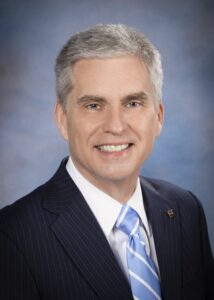The story has become way too familiar, especially over the past couple of years. You wake up one day and realize you’ve been feeling much different lately. You’re not sure exactly what’s wrong but you’re having trouble getting through the day. A couple of months pass and you’re feeling even worse. Your work or school performance suffers and you’re not able to do as much around the house, so your self-worth begins to evaporate. The expectations that come with being a spouse, parent, child, co-worker, or classmate close in. You try to deal with it on your own, but nothing helps. You’re worried about what others might think of you, so you keep it all to yourself and hope it goes away. Before you know it, you’re facing a crisis.
Feeling stressed about juggling a job, a family, and household responsibilities or being anxious or overwhelmed about making financial ends meet are normal feelings that contribute to our mental and emotional health. Stress, anxiety, depression, and substance use disorders can be difficult to talk about, but they are more common than many realize.

I suspect every one of us has been touched in some way by a behavioral health condition – either personally or through a family member or close friend. Also, the heightened stress of the pandemic has made this worse. During the past two years, the rate of people in Arkansas and the United States suffering from emotional struggles and suicidal thoughts has skyrocketed, especially among young adults between the ages of 18 and 24.
For those in need of behavioral healthcare, the challenges can be overwhelming. Too often, patients and their families face a system that’s hard to understand, navigate, and access. A system marked by fragmented care, high costs, a shortage of clinicians, and especially stigma. The stigmas associated with mental health challenges can make it extremely difficult to ask for help if people feel a sense of shame exists. You may think, “my challenges aren’t worthy enough of support,” or, “I’ll reach out for help if things get worse.” Not all wounds are visible, which makes it easy to look “OK” on the outside, but to be suffering behind closed doors.
In Arkansas, there is a prevalence of mental and behavioral health needs. In fall 2021, nearly 38% of adults in Arkansas reported symptoms of anxiety or depression. We at Arkansas Blue Cross and Blue Shield believe behavioral health was the biggest healthcare crisis we faced going into the pandemic and it will easily be the biggest one we face coming out of it. When you look at some of the greatest challenges facing healthcare – access, affordability, quality, patient experience – behavioral health is at the center of all these issues. And its impact is growing. It’s time to normalize asking for help and end emotional health stigma. Don’t wait until there is a crisis. It’s time to talk about it.
Our “whole person health” approach at Arkansas Blue Cross acknowledges that health is influenced by many factors, including our physical (body) health our mental (mind) health and our social needs. We’re making it our business imperative to recognize the whole health of our employees and members.
Investing In Whole Person Health
Last year, the Blue and You Foundation for a Healthier Arkansas, under the leadership of Executive Director Rebecca Pittillo, invested $5.29 million in state programs that connect people to much needed behavioral and emotional health services, including the UAMS Health AR ConnectNow platform, which is available 24 hours a day, 7 days a week, to help Arkansans connect with mental health professionals. Recognizing that emotional health challenges are more common than ever on high school and college campuses, we’re also supporting the National Alliance on Mental Illness in Arkansas to raise mental health awareness and advocate for students who need help.
This is the largest investment in the 20-year history of our foundation and by investing in these services, we are investing in a culture where people feel empowered to get the help they need, so they can show up to their jobs, their families, and their friendships as their full selves. Organization leaders can help too, there are myriad ways to create a culture where emotional well-being is top of mind – such as starting the conversation. It’s the first step to ending the stigma surrounding behavioral health.
Everyone deserves hope. If you, a family member, or close friend has ever experienced a behavioral health condition, then you know how precious hope can be. Arkansas Blue Cross is committed to making a true difference in how behavioral health is perceived and addressed in our healthcare system from a whole-person perspective in Arkansas and throughout our nation. It begins with compassion and commitment and that’s what we do best.
Resources for Action
We recognize that finding a provider when and where you need them isn’t always easy. We’ve created a resource page called Normalize The Conversation to help all Arkansans, regardless of their insurance status, get the tools they need to connect with a licensed mental health professional. We encourage community and employer organizations to share these resources, including PSA videos, across their networks.
Normalizing the Conversation
It can be hard to ask for help when struggling with emotional health challenges. It’s time to normalize asking for help and end emotional health stigma.
UAMS Health AR ConnectNow
With AR ConnectNow, help is just a call away, putting you in touch with mental health professionals right here in Arkansas.
NAMI Arkansas
Emotional health challenges are more common than ever on high school and college campuses. The National Alliance on Mental Illness in Arkansas works to raise mental health awareness and advocate for students who need help.
By normalizing the conversation about this important, often misunderstood topic, we can foster healthier, happier, more informed and empowered communities.
Curtis Barnett is Arkansas Blue Cross and Blue Shield’s CEO and president.

